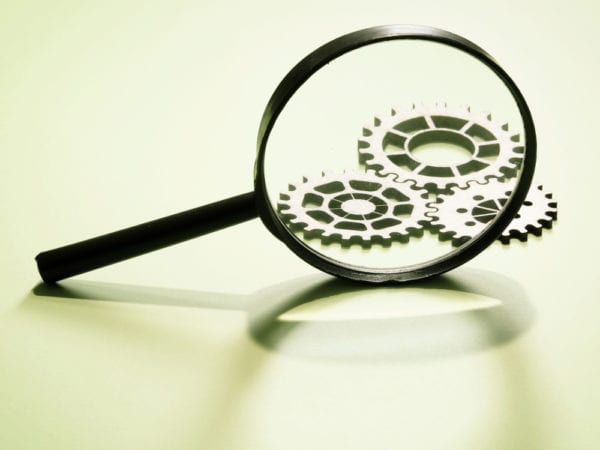Unfortunately, not much attention is given to the process of naming assets. Can you imagine identifying tens to thousands of assets based solely on a description? Not only would it be exhausting and confusing, it would be highly inefficient. In this article, we cover the basics of asset naming conventions.
| This article is part of a series of articles on the topic of asset naming conventions. After reading this article, be sure to check out our other articles on this topic: |
What is an Asset Naming Convention?

Asset naming conventions make asset identification easy, both in real life and in your CMMS.
In relation to implementing computerized maintenance management system (CMMS) software, an asset naming convention defines how your assets will be referenced in the system. As mentioned in our article, What is Asset Management?, identification plays an important role in asset management. Asset naming conventions are developed to remove any vagueness and ambiguity when communicating about maintenance assets.
Why Naming Assets Matters
By looking at the name alone, stakeholders should be able to tell what an asset is and where it belongs. While you could name assets willy-nilly, if you want to meet the goals of efficient communication and analysis, asset names must be standardized.
Naming Convention Example: Corporate Email Addresses
To demonstrate, let’s look at a naming convention for corporate email addresses:
A very common way to assign email addresses to employees is to use some combination of their first and last name. For example, John Doe’s email address might be jdoe@example.com, john.doe@example.com, or something similar. The next email assigned would follow the same structure – James Smith’s email would start with jsmith or james.smith.
The pattern then continues for each employee – using the first convention, Derek Johnson’s email address starts with djohnson, Alice Matthews’ starts with amatthews, Mike Williams’ mwilliams, and so on.
Based on this naming convention, it is very easy for an employee to determine the email address for Mark Jacobs without knowing it beforehand. Also, there is no confusion as to whom the address belongs. Now, imagine how difficult it would be if employee email addresses did not follow such a structure – it would be very easy to make mistakes and become confused. The same concept applies to the naming of industrial assets.
Importance of Asset Naming Conventions in Maintenance Management
From the corporate email address example, hopefully you’ve identified why standardized asset naming is important. The same benefits apply to maintenance management as well. Here are a few ways asset naming conventions can improve maintenance management:
- Quicker Onboarding of New Employees: You cannot assume that new employees have experience with the types of assets used in your organization. While over time technicians will be able to easily identify assets, it will be difficult for someone new to know the differences between them.
- Brevity: Though manual maintenance management systems allow you to be more verbose and wordy, lengthy descriptions take more time for technicians to decipher. Maintenance software limits the amount of characters that can be used, making it necessary to be short and to the point when describing assets.
- Consistent Data Entry: A clear naming convention makes it easy for users to name new assets during data entry.
- Efficient Use of CMMS: A standardized asset naming convention allows CMMS users to quickly locate existing assets in the system. Additionally, finding and sorting assets becomes easier because data is grouped together in a more logical manner
Further Reading: What is Asset Management?
Track Assets with FTMaintenance
Asset naming conventions are important, but there is more to asset management than naming and numbering. With a proper maintenance management system like FTMaintenance in place, you can identify, locate, track, and report on your maintenance assets. Learn more about FTMaintenance asset management software.

Recent Comments